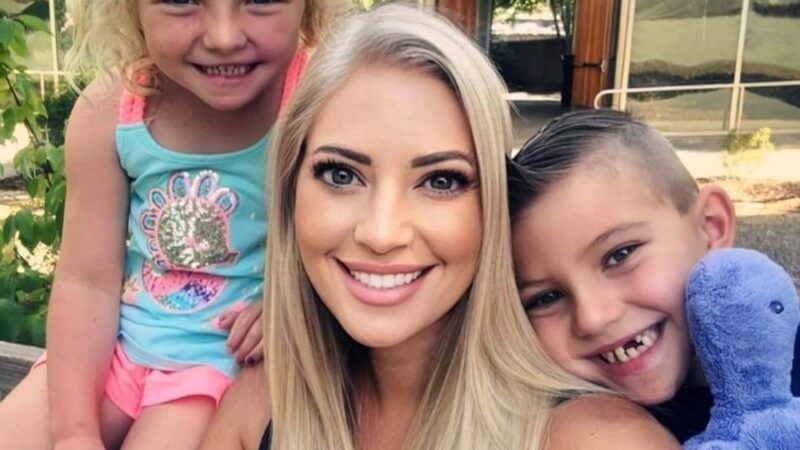Mom Who Was Arrested for Letting 14-Year-Old Babysit Has Finally Been Cleared
"I didn't know if this would ever end," says Melissa Henderson. "I'm very relieved. A heaviness has lifted."

Melissa Henderson, the Georgia mom handcuffed, arrested, and thrown in jail for having her 14-year-old babysit her younger siblings in the early days of COVID-19, has prevailed in her legal ordeal.
"I didn't know if this would ever end," says Henderson. "I'm very relieved. A heaviness has lifted."
That heaviness began on May 5, 2020 when Henderson was called to work. Unfortunately, her younger kids' daycare center was shuttered, and so was her older kids' school. She asked her 14-year-old daughter Linley to watch the four little ones, and off she went to work.
While Linley was participating in remote learning, her youngest brother, 4-year-old Thaddeus, spied a friend outside and went out to play with him. This was in quiet, rural Blairsville, Georgia: population 616. The friend's mother called the cops and thus Henderson's ordeal began. After all, the arresting officer wrote in his report: Anything terrible could have happened to the lad. He could have been kidnapped, run over, or even "bitten by a venomous snake"—the cop's exact words.
David DeLugas, founder of Parents USA, a nonprofit fighting for parents' rights, took the case pro bono.
"One of the things we pointed out is that Georgia's own guidelines from the Division of Family and Children Services say that 13-year-olds and older can care for siblings for up to 12 hours," he says.
DeLugas argued that Georgia's "reckless conduct" statute was unconstitutionally applied. In layman's terms, he explained, that meant her case shouldn't "even to go trial, because it's so ridiculously not a crime."
When Henderson was arrested, five cop cars came to her house. Henderson was handcuffed in front of her kids, put in the cruiser, and taken to a cell. Her ex-husband bailed her out.
The case dragged on for three years.
"It took me a long time to even be able to talk about it without crying," says Henderson.
She faced a possible fine of $1,000 and a year in jail. She was offered a plea but refused to take it.
In his brief, DeLugas quoted University of Idaho Law Professor David Pimentel's article, "Protecting the Free-Range Kid: Parents Rights and the Best Interests of the Child," which says that state interventions in the family "should be viewed with skepticism."
My nonprofit, Let Grow, is working to narrow states' often ambiguous and open-ended neglect laws. Our "Reasonable Childhood Independence" bills establish that neglect is only when you put your kids in serious, obvious danger—not anytime you take your eyes off them, or the state dreams up a histrionic (hisssstrionic? Remember the snakes) threat.
In the end, the judge agreed, stating: "This court is bound to find in favor of the Defendant, as the State has failed to allege evidence sufficient to indicate that Defendant consciously disregarded a substantial and unjustified risk."
Henderson is now a free woman with two problems still hanging over her head. The first is the time and money it will take to seal and expunge the arrest record, jail record, and court files, so she never has to mention it on employment or background checks. The second is that her ex-husband has just filed for custody of their two young children, based partly on her arrest. Her GoFundMe remains open to help defray the costs of both these battles.


Show Comments (65)